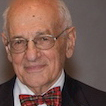
The world continues to turn upside down and sometimes you can’t make sense of it even by standing on your head.
Recent news has focused on the scramble of a number of states, following the Supreme Court’s evisceration of a key part of the 1965 Voting Rights Act, to rush through new measures aimed at booby-trapping the path of low-income — particularly, black and Hispanic – voters to the polls.
In Texas, the spotlight fell on the failed struggle of women to defeat a fiercely restrictive law that would in effect shut down most of the state’s few remaining abortion services. Elsewhere, the campaign to destroy public unions goes merrily on in various state capitals and the strangulation of public services with chokeholds on funding continues with a zeal that must warm Grover Norquist‘s heart.
Yet here’s the paradox: these assaults are not limited to traditionally conservative states, especially those in the South, but are carried on in such places as North Carolina, long considered one of the most liberal of Southern states; in Pennsylvania and Ohio; in North Dakota, once the home of the radical labor and agrarian Nonpartisan League; even in usually liberal Wisconsin, the great “laboratory of democracy” in the Progressive Springtime of a century ago.
The reason for this fast-spreading virus of reaction can be found in the liberal disaster that was the midterm election of 2010, when no fewer than 25 state senates and 28 state assemblies flipped from Democratic to Republican control.
Possibly the cruelest stroke of these new state regimes is the rejection by some of Medicaid funding provided by the federal government under the new Affordable Care Act, leaving those unlucky enough to be both sick and poor to suffer and die rather than take a sullied dollar of help from Washington.
The guardians of this brand of obstinacy defend it as resistance to the “tyranny” of the central government, and for support brandish the Tenth Amendment of the Constitution (which reserves to the states any powers not explicitly granted to the federal government). There is even a Tenth Amendment Center website where online visitors can explore the implicit power of the “deliberately hidden” power of nullification, the doctrine that within its borders a state can unilaterally refuse to enforce what it sees as an “unconstitutional” law.
But here is the uncomfortable truth. Any such extreme (and destructive) interpretation of states’ rights has as much to do with who holds the reins at a given moment as it does with a theoretical embrace of the separation of powers. In our version of federalism, for example, lightly populated states have an undemocratic amount of power in the Senate simply because back at the original Constitutional Convention in 1787 they threatened to torpedo the whole exercise unless they got equal representation.
James Madison entered that convention as a confirmed nationalist, but only a few years later, when the new Democratic-Republican Party that he and Jefferson had founded was in a minority, he helped draft the Virginia and Kentucky Resolutions, which affirmed the right of those two states to nullify the anti-democratic Alien and Sedition Acts passed by the ruling Federalists.
The Federalists themselves were the “outs” during the War of 1812, which was hugely unpopular in New England, their major stronghold. At an 1814 convention in Hartford, outraged Federalists openly spoke of, but luckily did not pursue, nullification and even secession.
In 1833 South Carolina’s legislature tried to nullify a tariff that it denounced as oppressive, but backed off when the federal government showed its readiness to use force and then offered a compromise. Generally, though, Southern protests against federal power were in defense of slavery. (Although in 1850, when the South secured a Fugitive Slave Law compelling Northern authorities to help slave owners recapture their unfortunate runaways, it was abolitionist-influenced states who turned to the weapon of nullification.)
In short, the noble principle of states’ rights has been more or less what the historian Arthur Schlesinger, Sr., called it decades ago: a “fetish” that is in itself morally neutral but which has justified as many states’ wrongs as rights.
What we are seeing at this moment is the commission of some grievous wrongs to democracy. Since the Reagan revolution, the goal of hard core conservatives has been to wipe out every vestige of the handiwork of two generations of Progressives and New Dealers who believed in the creative role of government to ensure a fair society with equal opportunity for all – one that does all those things that are hated by the parade marshals of the march toward plutocracy.
Still, we need to give due credit to their strategic shrewdness in carrying their battle to the states and framing it as a struggle for freedom from a meddlesome Washington bureaucracy. It has allowed them to draw on two centuries’ worth of states-rights rhetoric and tradition and takes advantage of some vulnerabilities in state governments. Archaic laws hobble many state lawmakers with mandatory short sessions and caps on their compensation. This produces a crowded legislative calendar full of complex measures that the best-intentioned men and women, for many of whom the job is only part-time, struggle to master.
Despite efforts by organizations like the National Council of State Legislatures, state legislators lack the staffs and research agencies available to members of Congress. So the “help” of groups like the right-wing American Legislative Exchange Council (ALEC) in providing model statutes is an easy alternative to simply voting as their party leaders tell them. Reform organizations need to match that effort, and direct more resources towards state capitals. Until they do, state houses will remain happy hunting grounds for the lobbyists of better-organized, deep-pocketed special interests.
Another factor favoring takeover of the states by neo-Social Darwinists is public apathy. Voter turnout, dismayingly poor even in presidential years, drops to 30 and 40 percent – or worse — in off-year elections. Even then, many voters pay attention only to top-of-the-ticket offices like governor or senator and fail to complete their ballots — or simply check the box for a straight party-line vote.
What’s more, media help identifying and explaining candidates is scarce. Big city papers and networks carry little if any state political news, and small town, locally owned newspapers and radio stations have long gone the way of the dinosaurs.
For what it’s worth, my own take as an historian is that our federal system has great usefulness for governing a gigantic and diverse nation. But it needs to be rooted in realism. The varied economic interests of states of different sizes can be protected and reconciled at the national level, as they are in parliamentary systems, by building alliances and striking deals. But the notion that peoples of different states have different ways of life that only they can cherish and understand began to die with the first click of Morse’s telegraph, the first puff of smoke from a locomotive, the first squeal of static from a primitive radio set.
We now live in a homogenized culture in which most of us know far more about our national than our local elected officials. So what I fear has happened is that in typical American style we drift towards bombast and exaggeration and inflate “state rights” to “state sovereignty.” Baloney! The states never were genuine mini-nations (no matter what Texas may say). The fantasy of pretending otherwise cost us a Civil War and over half a million lives. To revive it now may well cost us what’s left of our democracy.
 |
Bernard A. Weisberger is a historian who has been by turns a university professor, an editor of American Heritage and a collaborator on several of Bill’s documentaries. |

